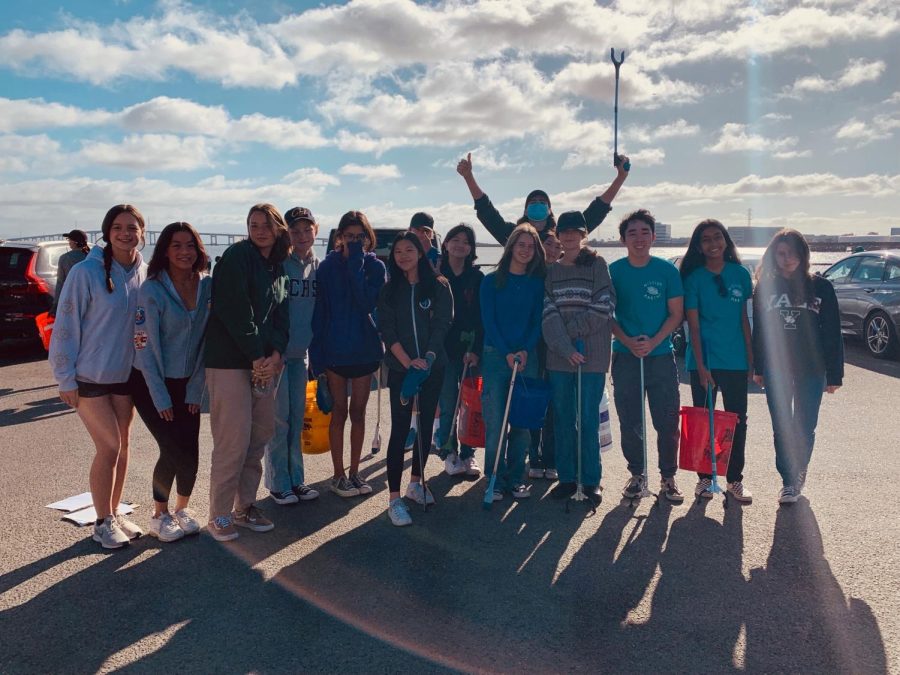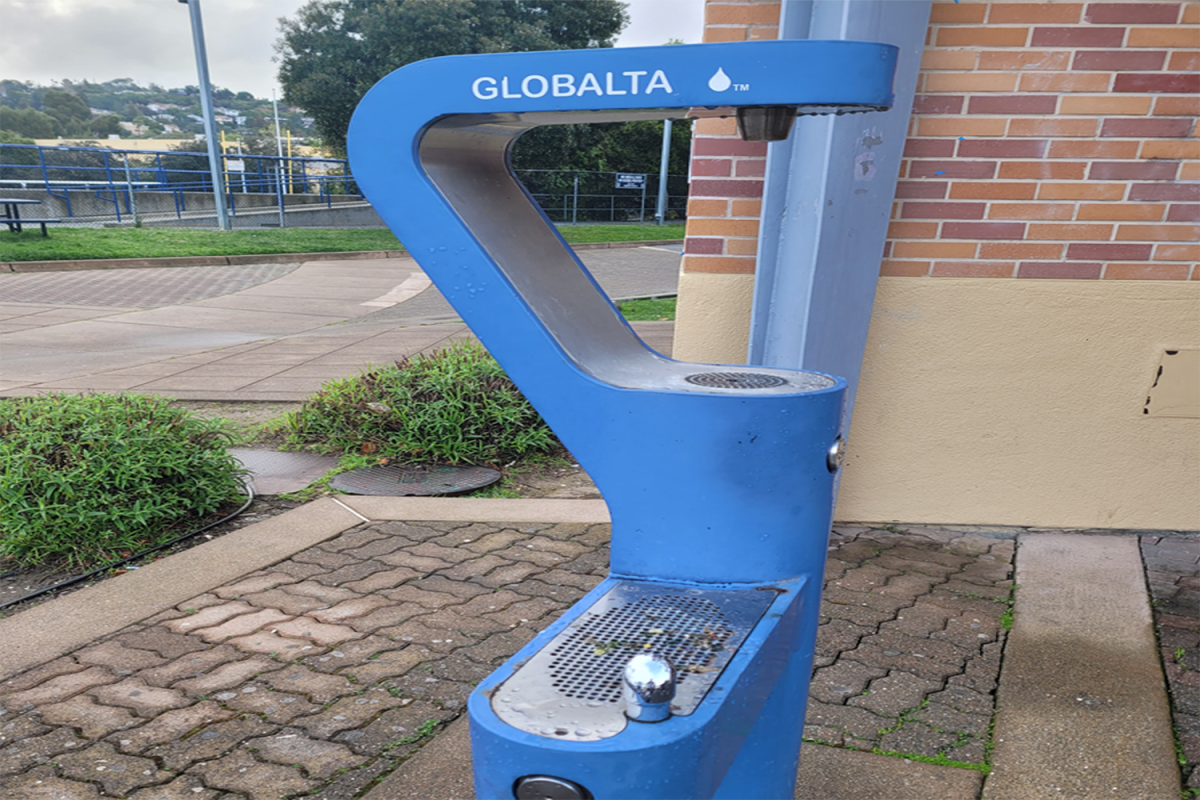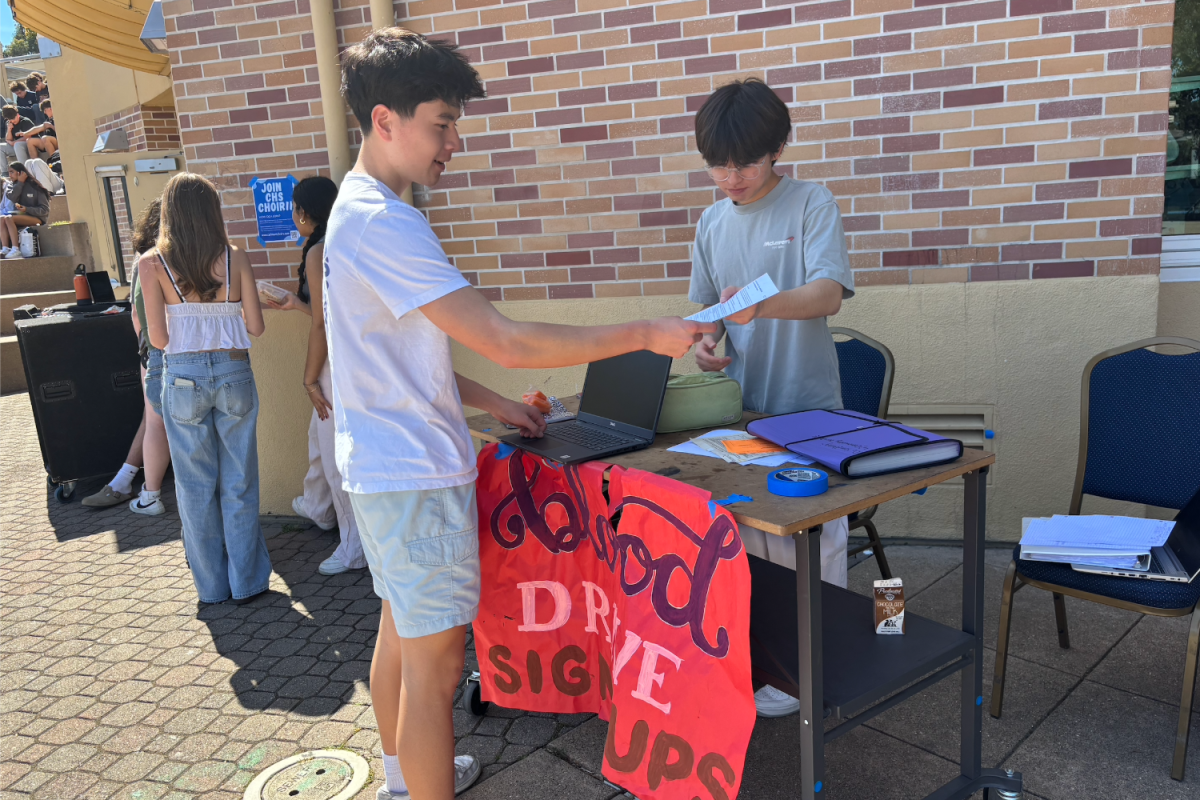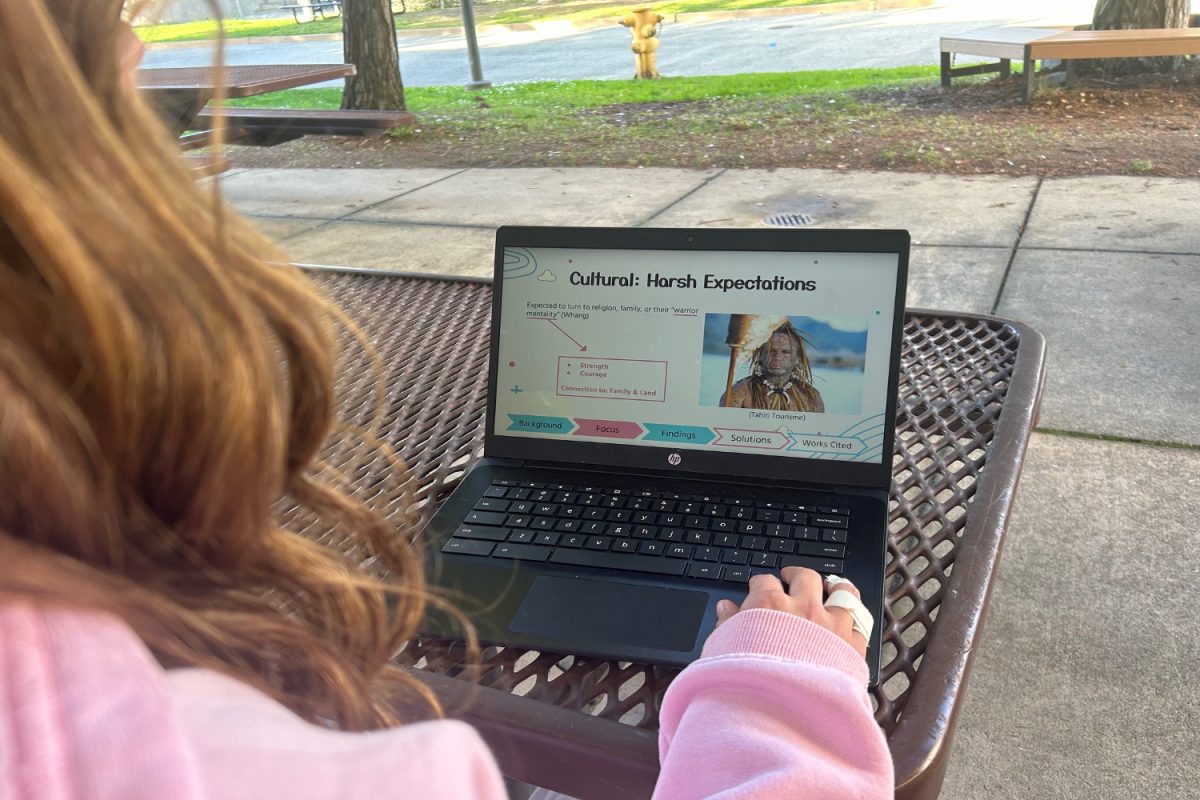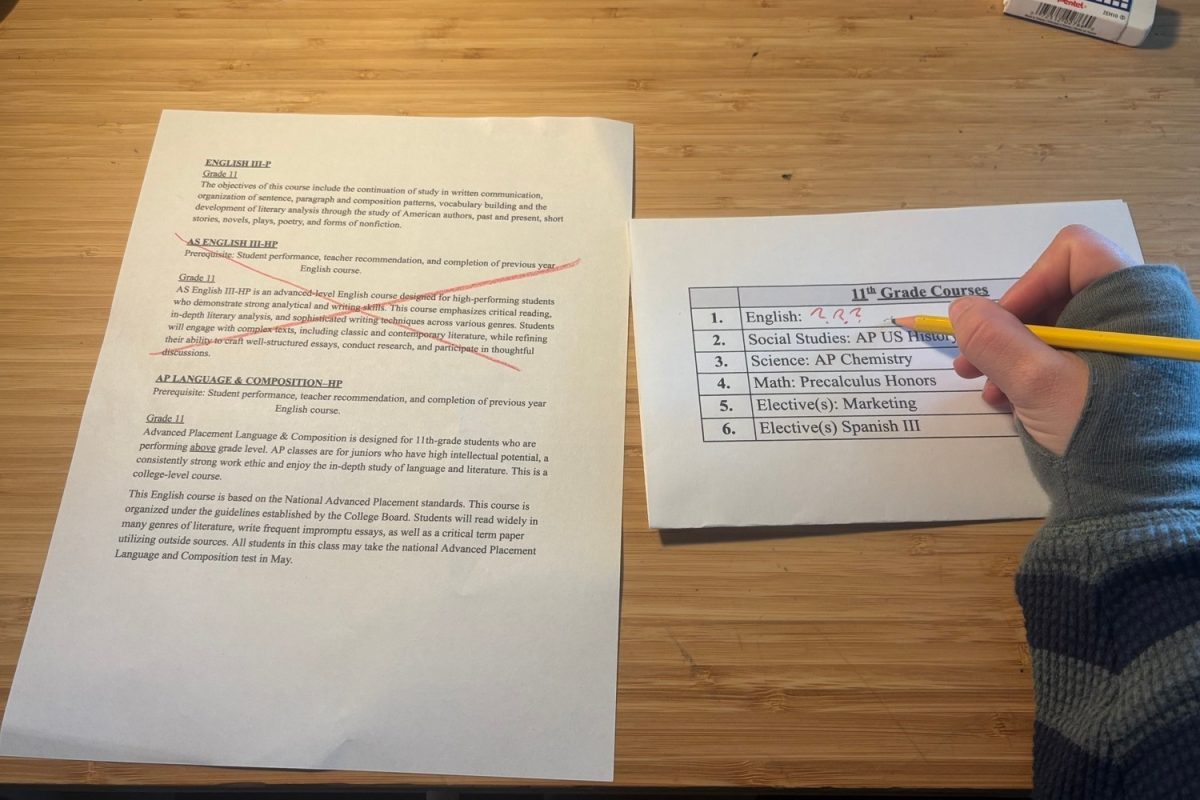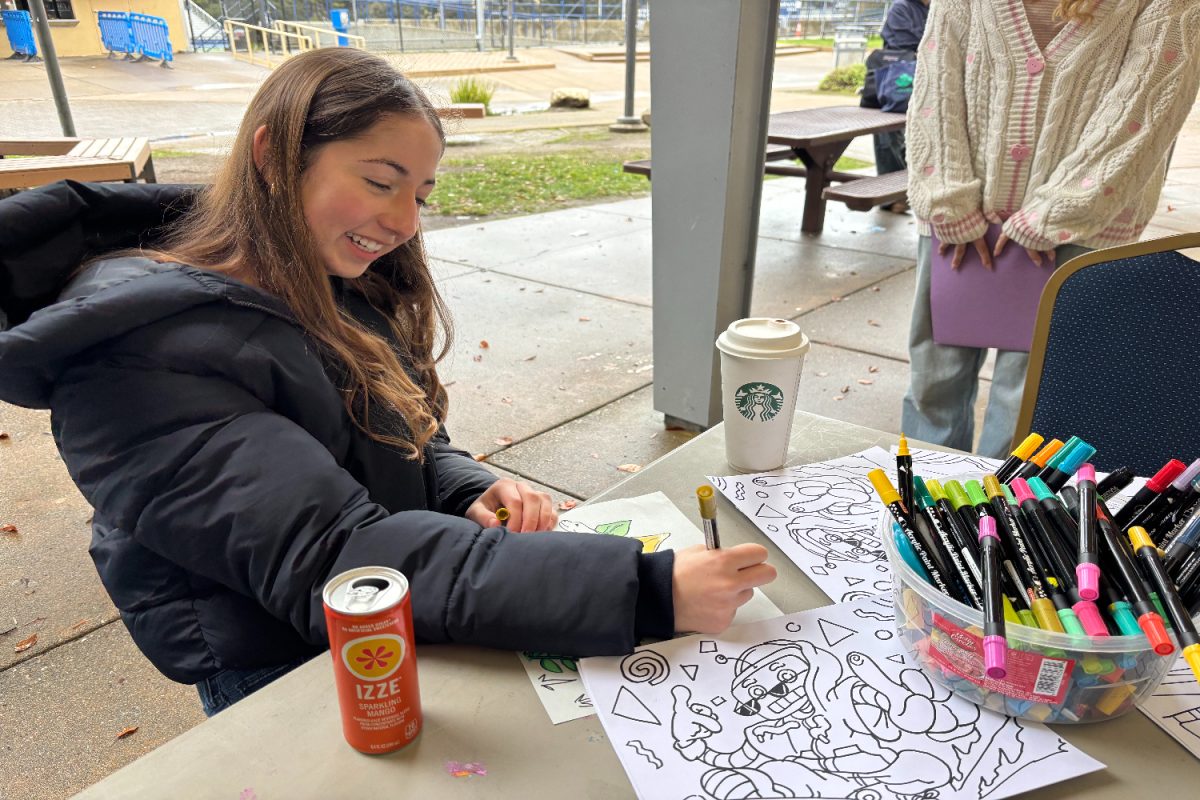A group of Carlmont students strives to take part in saving the environment by dedicating their club to reducing pollution.
Carlmont’s Mission Marine Club engages in beach clean-ups and other activities that contribute to helping the environment. They not only benefit themselves by gaining service hours but also help out the ecosystem by doing so.
According to the National Oceanic and Atmospheric Administration, billions of tons of trash enter the oceans and get washed up onto beaches every year. Some of the pollution in the ocean gets eaten by marine animals, thinking it is food, and one in three marine mammal species is found entangled in litter yearly.
Pollution and other issues have been a huge problem on Earth. Fortunately, Mission Marine Club is not the only one taking the initiative. Other environmental clubs at Carlmont, such as Green Team, also figure out ways to reduce the amount of trash at school.
“As of right now, we’re just taking the trash out of the beaches,” said co-president of Mission Marine Club, Manya Kumar.
The club is working with a group that lets them organize their beach clean-ups and ensures everything is legal and safe. Through them, the club is able to safely enjoy a day of helping the environment.
“There is this thing called the Pacific Beach Coalition, and in order to keep everyone safe, we basically do all our clean-ups through them,” Kumar said. “We make our own club sign-ups so that we know who is coming, and then we meet the organization at the beach.”
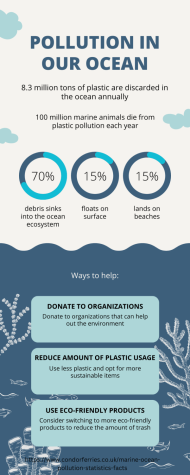
These club sign-ups are found through the club’s Remind or through their Instagram, where they post information such as the times and locations of the clean-ups. They also post pictures of the clean-ups themselves so that they can share their experiences and encourage others to join them.
“We go to beaches all around the Bay Area, like Half Moon Bay, Redwood Shores, and Foster City; we try to reach everywhere,” said vice president Anika Bock.
The club cleans up areas around other bodies of water as well, not just oceans, such as Seal Point Park in San Mateo or Baywinds Park in Foster City.
Other than cleaning the beaches, however, in past years, the club has also held fundraisers to spread awareness about ocean-related problems.
“We raised awareness for coral bleaching at school where we had reverse tie-dye, and we donated that money to Oceania,” Kumar said. “They help pass policies that prevent problems like trash getting to places where it shouldn’t be in the first place.”
The club has helped with habitat restorations as well, according to Bock.
When it is not raising money or cleaning up the beaches, the club hosts informational presentations and fun activities every other Tuesday during lunch in room U23.
“During our club meetings, we are usually talking about upcoming events, and sometimes we do something fun like a Kahoot,” Bock said.
Their staff advisor, Josh Engberg, who teaches chemistry in the Biotechnology Institute (BTI) program, has been advising the club for a few years now. According to Engberg, the club started about four years ago, and he assumed the role of advising the club after the last advisor retired.
“This club does a lot to raise awareness of the importance of the ocean and the overall health of the planet,” Engberg said. “Clubs that are well run don’t require too much input from the teacher because it’s mostly the students that supervise themselves.”
Less of a need for teacher or adult participation in a club shows that the students are independent and can take control of their own responsibilities, just as is the case with Mission Marine Club.
“We want to help Carlmont students understand the magnitude of ocean pollution and show that you can help, even if it is a small contribution,” Kumar said.

